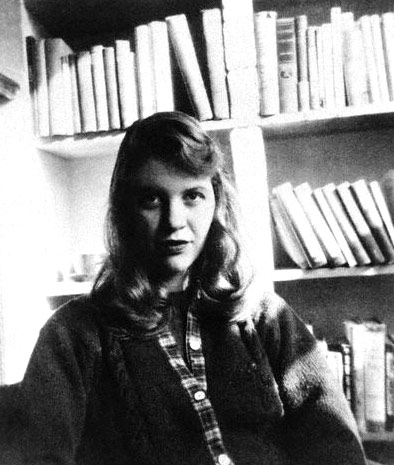women and madness: a speculative take on the life and death of sylvia plath
Plath is widely known as the deeply disturbed, articulate and psychotic poet. Attempted suicide, successful suicide, a stint in a sanitarium and a famous poet husband (Ted Hughes) whose sociopathic mind games contributed to Plath’s destructive daddy issues: these were enough to fuel her prolific poetic career.
The fascinating thing about Plath’s life is that no one really knows if it was genetic insanity at the heart of her success or if the insanity was a byproduct of her environment. After years of study on Plath and her troubled life, I can’t help but come to some speculative conclusions of my own.
Last year I completed a thesis that used Plath as a case study for women and madness. Her life quickly became a point of extreme fascination to me and I devoured books and articles, her journals and other case studies – anything to shed some light on the tormented, short life she led and give me insight into her perpetual state of despair. What was the drive behind all of the pain she felt and the emotional poems and writing she produced?
From a radical feminist perspective, her madness and depression could be seen as purely a product of her environment. Suffering the oppression of men, the lack of support to follow a career and the expectations of becoming a mother and doting wife. But I think it can be speculated that it was a combination of environmental and psychological factors that fed the poetic monster. Her journals from 1950 onwards indicated her feelings of inadequacies and self-doubt from an early age. The constant questioning of herself, her motives, and wanting to lead a different life were all repeat offenders in her journals. Plath, in my opinion, was suffering from acknowledgement of the human condition.
‘I am feeling depressed from being exposed to so many lives, so many of them exciting, new to my realm of experience. I pass by people, grazing them on the edges, and it bothers me.’
She was aware of the excitement she was missing out on and the very real idea that she would one day succumb to the status of housewife and leave a career behind. I wanted to know more about her. I had to know more about what she was thinking, feeling and experiencing. It was a sick fascination.
Reading her journals was strange; like I was a little sister frantically flicking through the pages before being caught. I was an intruder. But it made me realise that when I was her age and writing in journals, I was writing similar things. Similar observations and feelings about how I felt about the world, my destiny and observations of others; the anxiety I felt over what my future held and if I was fitting in. I’m not going to lie, it did make me slightly concerned that I could relate to what Sylvia had been feeling. But then I realised the difference was that I grew out of those feelings of absolute inferiority and helplessness; of the fear of not being able to reach my dreams. I’m not sure when that happened for me, but it got me thinking about Plath’s depression and why she was unable to break the cycle. Again, this probably links back to the social constructs of the time, but I feel that she also became somewhat dependent on her perpetual depression.
Perhaps she was fearful that without the pain and suffering, her creative spark would dissipate into nothingness and she would follow. Her poetry draws parallels to the events in her life, the emotions she felt, the issues she had with men and the pursuit of a career in writing. Her novel The Bell Jar mirrored her first attempt of suicide, ECT treatment and interactions with Mademoiselle. Her life was her poetry and her poetry was her life. Without those depressing thoughts, those feelings of absolute loathing and anxiety, her works wouldn’t have had the same impact. Without the torment maybe she wouldn’t have enough material to feed the creative fire. Without those feelings there perhaps wouldn’t have been any works at all.
Reading the journals changed the way I perceived her. It gave me an insight into not only her character but also the real drive behind her poems and emotionally charged writing. I think we may never truly know if it was environment or genetics that saw her take on the label of “mad”, but we can only assume it was a mix of both that fueled the material for her career and depression. I don’t think anyone will ever know the truth about Plath. Our only link to her internal monologues was through her poems and journals. Perhaps the secret was in the one journal Ted Hughes destroyed before handing the rest over for publication. Plath’s life, like her poems, remains dramatic and elusive. ‘I shut my eyes and all the world drops dead.’



I read Janet Malcolm’s take on Plath’s life earlier this year, and what was most interesting were the way she was presented in biographies: either victim of a deviant husband, or a manipulative crazy woman. Oh, the stories we tell about women…